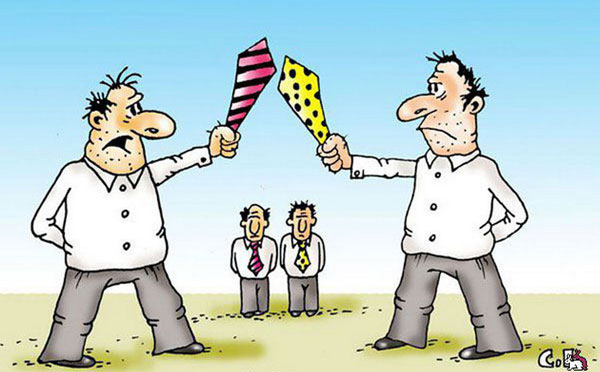And pass to the social contract, this is the problem of our society.
Mainly, the political and partly philosophical debate, which was held in the 17th century in Europe and first of all, in the UK, was the following: whether the government is a grace granted by God or it should be formed by another, the non-hereditary mechanisms. To the point, it is not necessarily that the proponents for the second view be more “advanced”; the Pope’s power is not hereditary then and now, it is elected, but the Vatican has often played quite regressive role.
Generally, both the Catholic and Protestant figures were rebelling against “legitimacy” of heredity, often pursuing “non-democratic” objectives. Today, of course, it sounds quite strange that during those times, many people were drawing the political power from the father and son relationship, and allegedly, it was coming from everyone’s forefather Adam. It seems absurd in nowadays Europe, but in the Far East, such theories, passing through certain transformations, are maintained, and do not prevent, for example, the Japanese to have a modern and prosperous state.
Accordingly, the “Mikado” (which applies not only to the emperor but also the state system) was a descendant of directly the Goddess of Sun, the rest of Japanese, according to this tradition, are the heirs of the same Goddess, but from her younger offshoots. Though in the half of the past century, the 124th emperor of Japan Hirohito officially renounced this theory, however, it was just a political concession to the requirement of the countries winning in the World War II and the foundations of the national ideology were not disrupted. As soon as the spiritual sense vanishes from the father and son relationship, it becomes a foundation for dictatorship. I think it is no coincidence that the 20th century dictatorships, ranging from Stalin to Pol Pot, were either completely atheistic, or, at least, reserved about religion. The people’s or peoples’ “father” is no longer the king, whose power is coming from God, the mythology around him is developed by “evading” the traditional religions.
It is noteworthy that after the death of General Franco, the monarchy was restored in Spain, with the king’s symbolic authority, and it was a part of the county’s democratization process. What could the “father and son” relationships be replaced with? Of course, with the social contract. The latter is based on the idea of “natural law”, which was expressed by Christian thinkers much earlier of the 17th century. For example, in the 13th century, Thomas Aquinas wrote, “Every law created by humans contains features of the law as much as it is derived from the natural law. But if it is somehow contrary to the natural law, then it immediately ceases to be a law and becomes merely a distortion of the law.” Here, as you can see, it is quite easy to derive the principle of all of us being equal to the law, the very principle that became the foundation of the social contract. If the power is not passed from father to son in one way or another, then the members of given community or the state should agree with each other on temporarily attributing the administrative and legislative functions to either of them. Europe follows this political philosophy since the 17th century, these principles are particularly clearly outlined in the British Thomas Hobbs, John Lock’s and French Jean-Jacques Rousseau’s writings.
We will talk more about this another time, but here it should be noted that the social contract must be also based on the sensation of national and personal sovereignty. If I am thinking that my government authority one way or another is appointed by Moscow, or if the person has achieved this post by deception, force and bribery, or appointed by the Central Committee, then I am not a “subject” of a social contract. The, I again will visualize my country’s government authorities, ranging from the village mayor to the president, as a “father”, who should take care of me, and if not, I will be upset from him or would even curse. This is why we call them a “king.”
Aram ABRAHAMYAN




















































